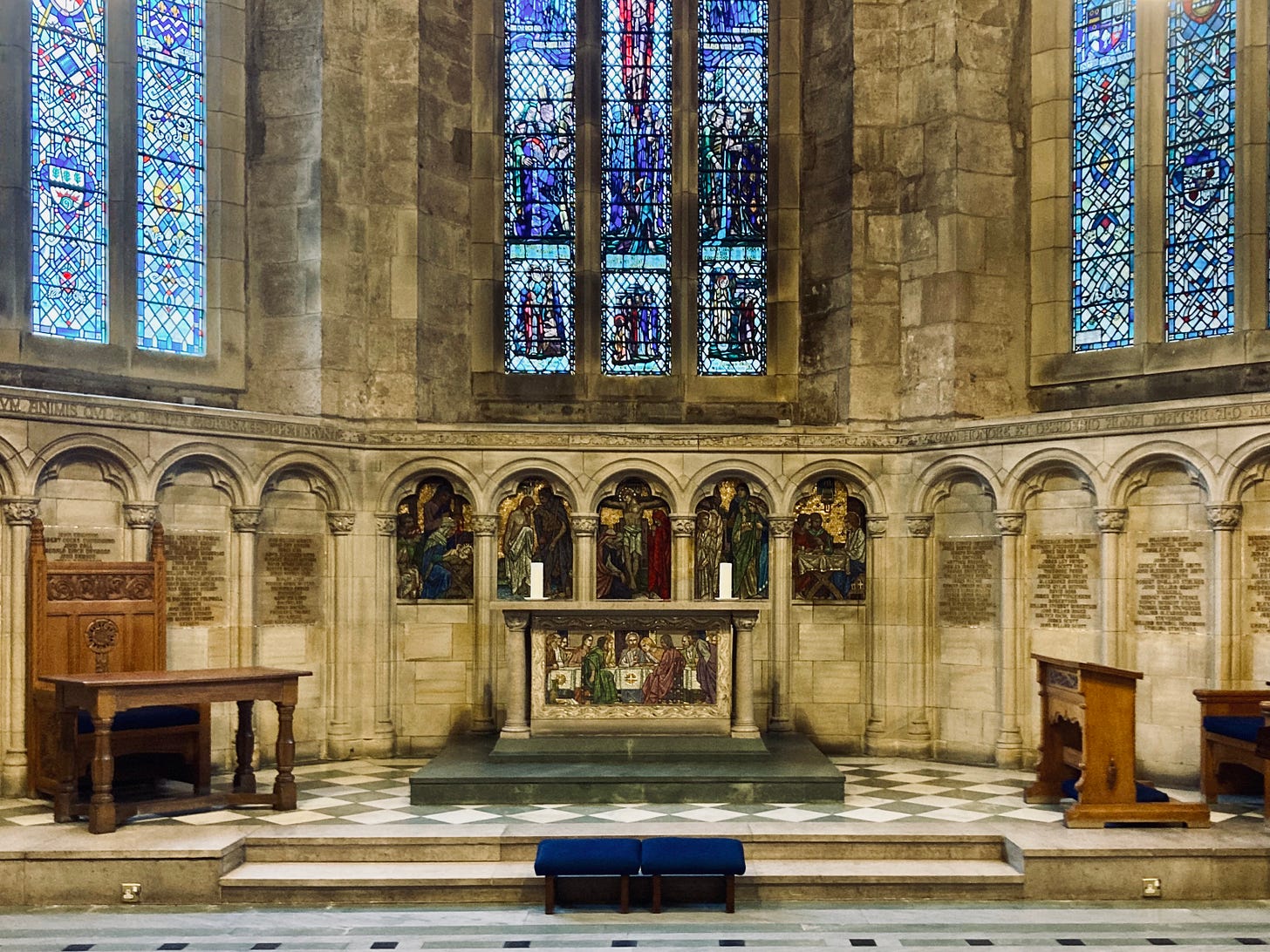Dear Friends,
Long time no write! A few of you have sent me messages and emails to check in and see if I am ok. I can assure you that I am even more than usually ok. Indeed, I am very well. And I have a better than usual excuse for my gap of absence.
I wonder if any of you have managed to escape the Taylormania with the very recent release of Speak Now (Taylor’s Version)! I have already heard it at least in two cafes since its release yesterday. The title ‘Speak Now’, as most of you may now know (willingly or not), refers to the part of a wedding ceremony where the officiant asks the congregation to “speak now, or forever hold your peace” about if there be any impediments to the marriage at hand. Of course, in the title song, Taylor is in the process of not holding her peace, or at least she imagines she herself to do so. The song describes one version of the marriage question. A few months ago, I shared with you a conversation with my colleague Clare Carlisle about her new book The Marriage Question. I love how she begins:
There is something dazzling about marriage — that leap into the openendedness of another human being. It is difficult to look directly at it, difficult to think that thought. A philosopher usually swoops on such things like a magpie: Look! a shifting, shimmering question, all indeterminacy and iridescence. Don’t you just want to snatch it up, take it home, and sit on it for a long time?
The book sets off to snatch up this shifting, shimmering question and explore it as a worthy object of philosophical inquiry, exploring it through the life of George Eliot. I am struck by this idea of the “marriage question” as one which we will all answer, and find significant to answer, in our own lives whether or not we choose (or are given the opportunity to) marry. Our lives are shaped by marriages in diffuse and powerful ways. The marriage (or indeed, choice not to marry) of our parents, the shape of it, its tensions and limitations, the gifts it offered us as inheritance, the curses it laid on our backs, which we hope and pray to break. Beyond our own families, too, our lives are touched by the generative grace of a long and faithful union, by the disappointment and exhaustion of a fraught one, by the devastation (and, sometimes, relief) of a broken union. These relationships, chosen and yet so much the fruit of our foggy histories and neuroses, pursued like a great treasure and found when we’re not looking for it, entered in haste, in thoughtfulness, in lust, and profound love, these relationships pervade our every day life, and shape our childhoods, our work, our church, our world. Whether or not we choose to marry, we make sense of these questions in our own ways, and the echoes of their answers resonate throughout the entirety of our whole life.
In a marriage ceremony, the spouses are asked “will you have this person…” It is a question only the spouse can answer, and yet, so often, is through the live, answers, and bravery of others that we are able to arrive at a confident answer to the marriage question. I will always remember reclining at brunch with a friend after he’d just gotten back from a dear friend’s wedding. I asked him about the couple, and raising his eyebrows with affection exasperation, he cut his eggs Benedict with a meaningful deftness “it takes village to get a couple married.” I laughed, but I have thought often about how true it is. Each couple needed parents, biological or spiritual, to show them how to love, they needed friends to make them brave enough to ask their crush out, or to encourage them to give suitor a go. They needed family and parents to, friends welcome and test them. They need confidants to lean on when there is a wobble, and they are trying to decide how important this relationship really is to them. They need a priest as they approach marriage, to make sure marriage is not “to be taken in hand unadvisedly, lightly, or wantonly; but reverently, discreetly, advisedly, soberly, and in the fear of God.” And they need each other to answer each other’s questions.
I believe marriage is a sacrament, a special means of God’s grace in the world, a gift we receive from God, and to which we must faithfully respond our whole lives. Just like baptism and confirmation, when the moment comes, we must make the answer and take the vows, but we do not do it alone. We are accompanied, we have been prepared and guided, readied for this moment. And our vows are witnessed, affirmed, and echoed by the congregation who are participants by their very witnessing. The sacrament is never a private job, but a communal reason to rejoice: a new brother or sister in Christ, a new full member of the church, a new couple. What wonderful gifts God has offered us.
It has been a month of weddings. All these thoughts were swimming through my head when I witnessed the marriage of my dear friend Grace, at whose baptism I was also a witness and a sponsor. What a joy to be present for this sacrament too.
Keep reading with a 7-day free trial
Subscribe to Joy Clarkson to keep reading this post and get 7 days of free access to the full post archives.




